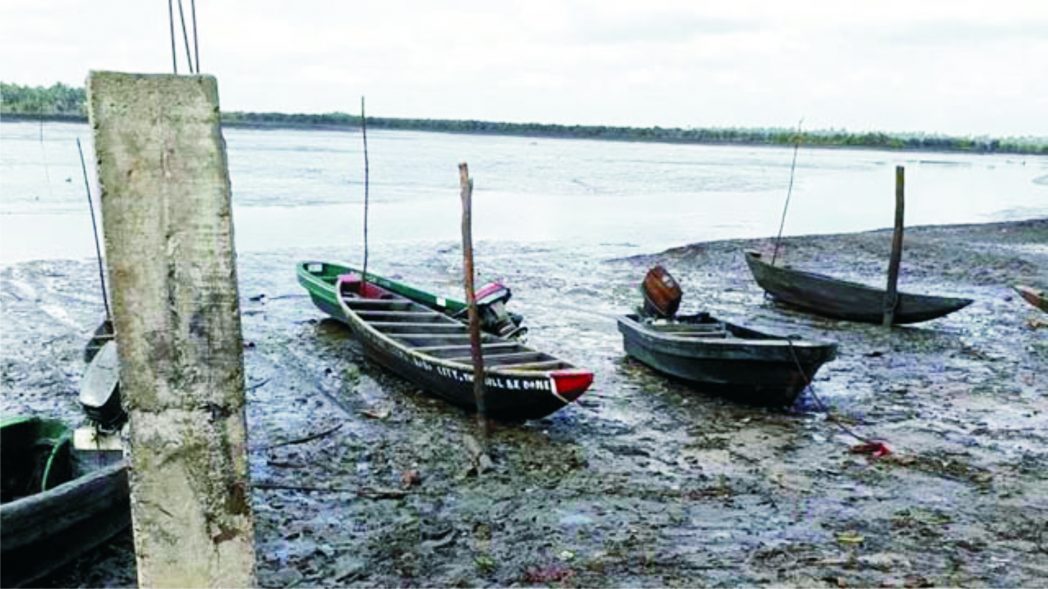Business
Rivers Fishermen Decry Illegal Bunkering, Want Govt’s Support

Worried by the negative impacts of illegal bunkering on the aquatic life in rural areas and the incessant attack on fishermen by sea pirates, the fishing folks in Rivers State have called on the state government to come to their rescue.
The call was made during an interview with some fishermen on Monday, in Port Harcourt.
Speaking to The Tide, a fisherman, Ene Dimabo, said that since the advent of illegal bunkering in the state, the aquatic life had never been the same.
According to him, “I am a fisherman and that is my traditional occupation. I have been in it for about two decades, what we are catching now as fishermen cannot be compared to what we used to in the yester years. Formerly, we used to catch assorted fish species like snapper, tilapia, sardine, mullet and others, but today most of these species have gone into extinction due to the activities of illegal bunkering.
“The fisherman today is faced with the impact of illegal bunkering and the violent act of the sea pirates on fishermen. We are passing through a very critical condition to be able to fish. It is life and death, the sea pirates who are so heartless will not spare even the last piece of fish in your boat, that is if you are not abducted.
“I am therefore, calling on the state government to give priority attention to fishing sector because that is what our parents at home used in surviving. Illegal bunkering and sea pirates should be checked”.
Another fisherman, Ibibo Dango said, “the major challenge fishermen are facing in the state is lack of government support and attention. The fishing implements and gears are not easily accessible and to make a fisherman fully independent and self reliant, one has to be fully equipped with the fishing gadgets which are cost intensive. We therefore, call on government to support the fishing sub-sector if we must achieve the state government’s policy thrust on agriculture.
“The issue of illegal bunkering and its attendant negative environmental impact is beyond lip service it rather need scheck on the big time sponsors”.
A fish seller, Felicia Dokubo told The Tide that before now, her mother in the village used to pick periwinkle, oyster, shrimp and other sea foods at the swamps close to them, but noted that, since the bunkering activities started in the state, most of the seafood had disappeared.
She said, “my mother at home can no more practice her traditional occupation of fishing, due to pollution and the little you manage to catch, the sea pirates will surrender you, brutalise you, at times kill or abduct you and collect all the fishes in your possession. Government should do something to help us”.
Transport
Automated Points Concession : FAAN Workers Gave 72hrs To Revise Decisions In PH

Transport
FAAN Announces Pick-Up Points for Go-Cashless Cards

Business
Fidelity Bank To Empower Women With Sustainable Entrepreneurship Skills, HAP2.0
-
Politics4 days ago
2027: NIGERIANS FAULT INEC ON DIGITAL MEMBERSHIP REGISTER DIRECTIVE
-

 Environment4 days ago
Environment4 days agoLAWMA Director Says Sweeping Reforms Have Improved Waste Collection
-
Politics4 days ago
LP Crisis: Ex-NWC Member Dumps Dumps Abure Faction
-

 Politics4 days ago
Politics4 days agoUmahi Dismisses Allegations On Social Media, Insists On Projects Delivery
-

 Sports4 days ago
Sports4 days agoAbia Not Sure To Secure continental Ticket
-
Politics4 days ago
NATASHA ELECTRIC VEHICLES INITIATIVE IN KOGI CENTRAL
-
Sports4 days ago
La Liga: Yamal Records First Career Hat-trick
-

 Sports4 days ago
Sports4 days agoPSG Extend Lead In Ligue 1

